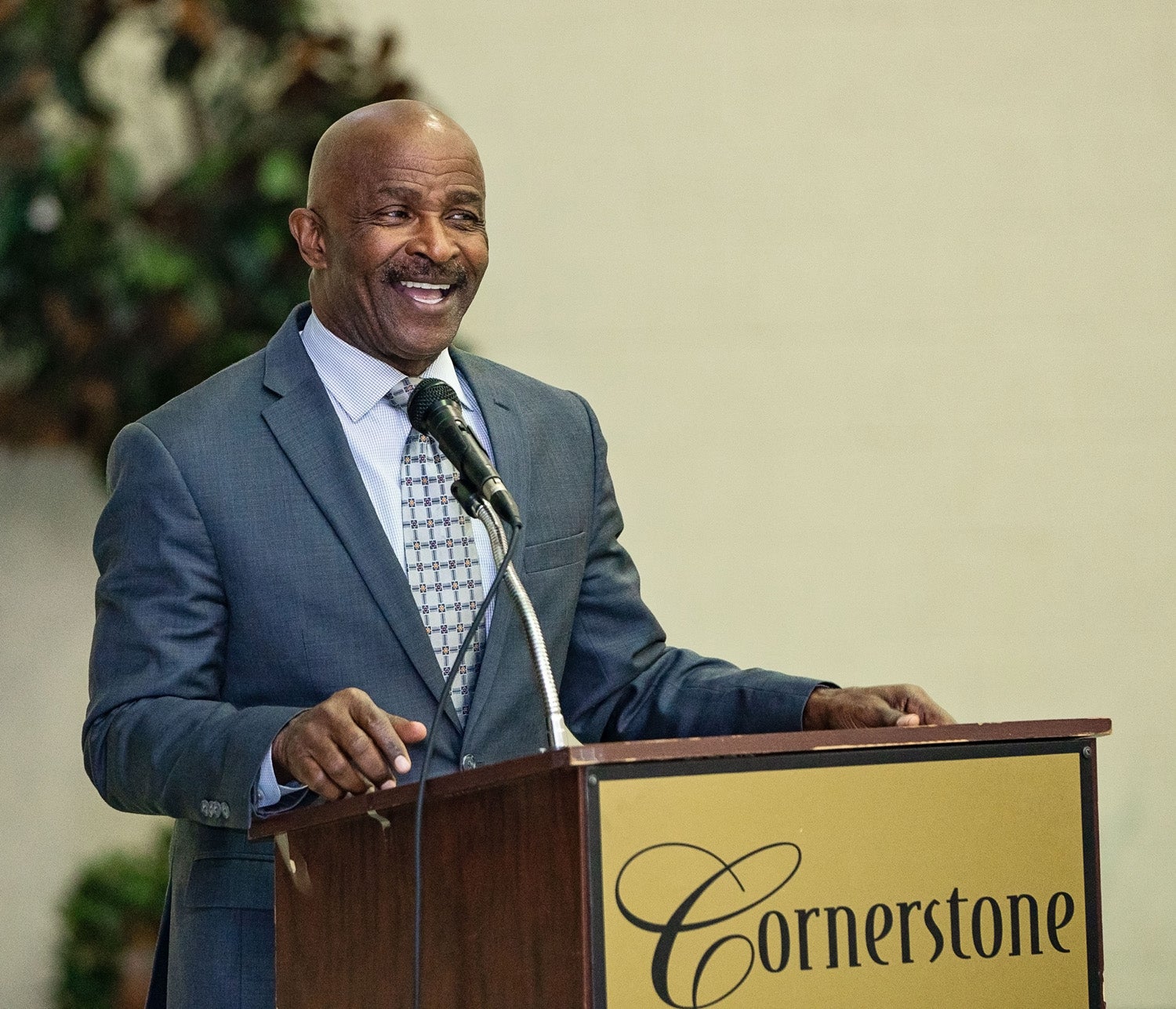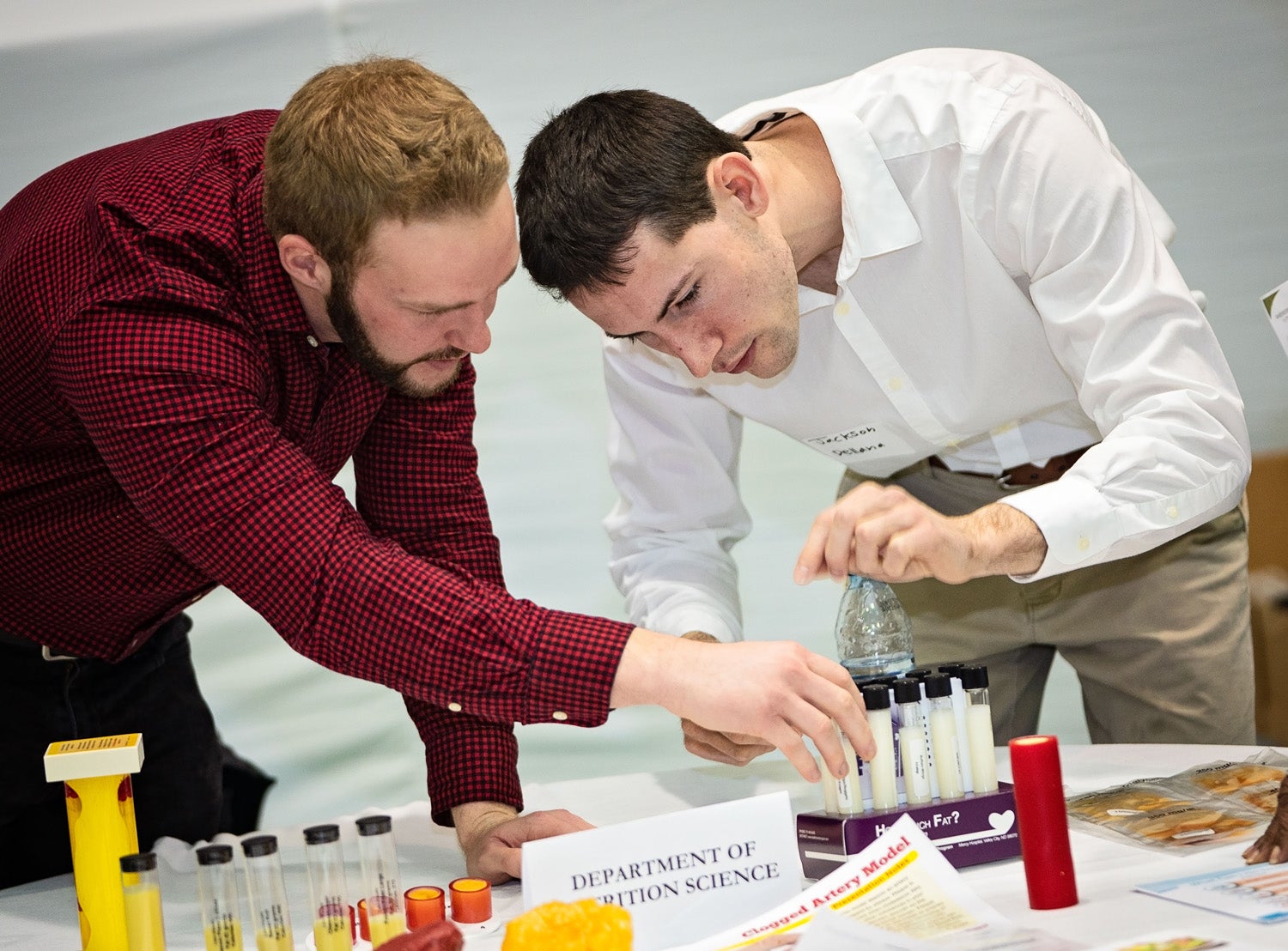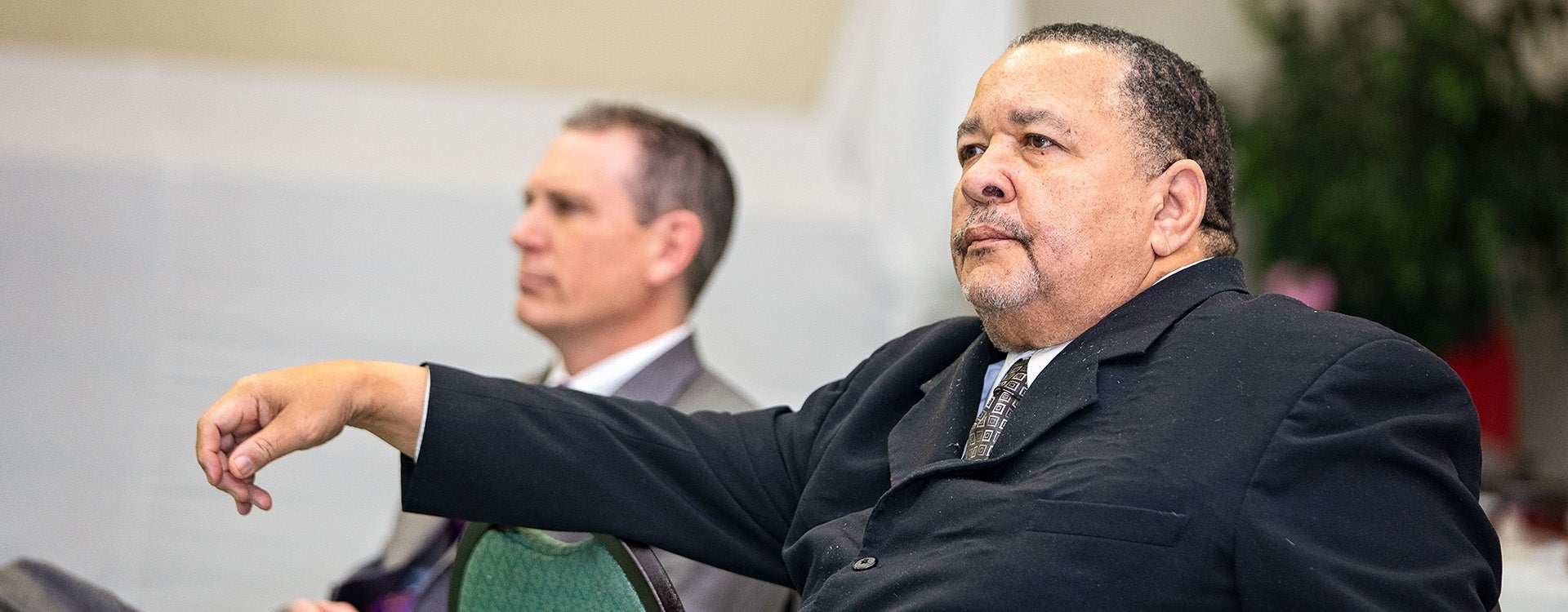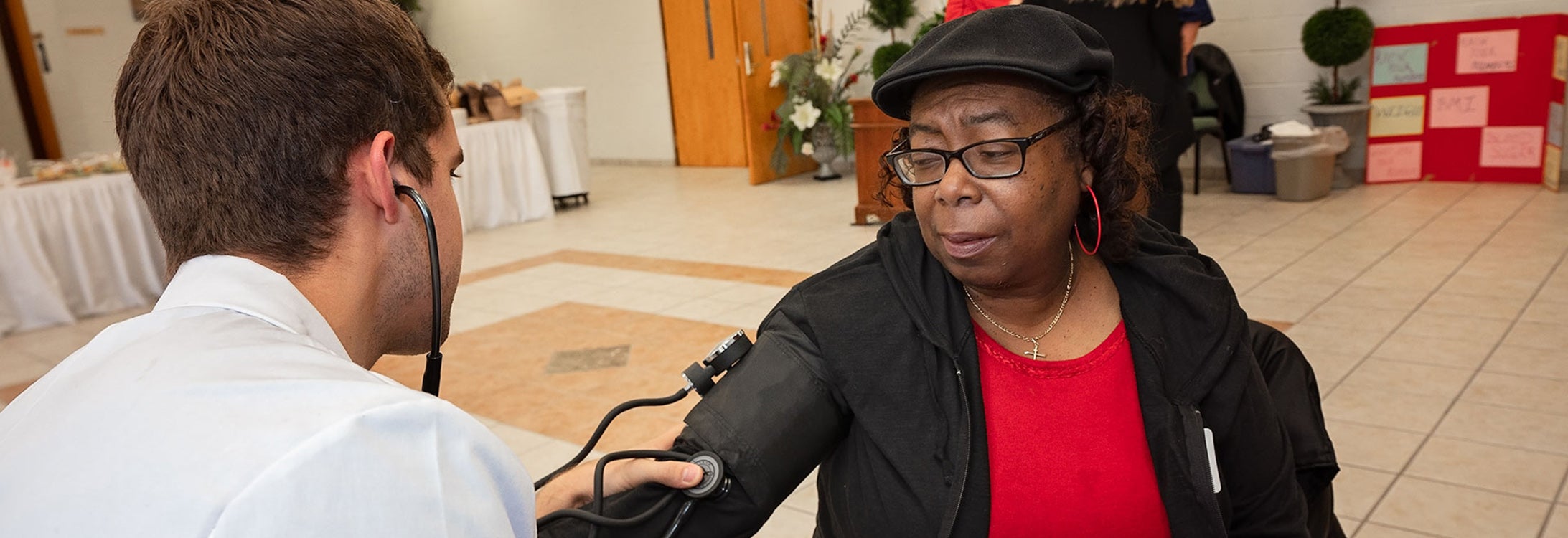IMPLEMENTING CHANGE
Jean Mills Health Symposium moves into the community in its 15th year
When Rev. Richard Joyner noticed a concerning trend of young people dying of chronic, preventable diseases in his small community of Conetoe, he went looking for solutions at the institutional level and came away with a lot of ideas. But he soon realized the things he learned at the various conventions he attended didn’t come with an instruction manual or a team ready to help make the changes his community so desperately needed.
Joyner — the speaker for the 15th annual Jean Mills Health Symposium held on Feb. 22 — eventually found a solution, spearheading a summer camp project for the children of the community in which they would build a garden that provides fresh, nutritious food for the community while teaching about nutrition and subjects like applied math and science along the way. To get to the solution, he posed a question the symposium sought to answer: How do we bring the institutional-level knowledge of prevention and rehabilitation that is cultivated at places like East Carolina University into the community, so that its citizens are able to benefit from it?
For the hosts of the event, bringing the symposium off campus and into the community was an important step. In its first 14 years, the event was held on campus and usually featured a nationally renowned leader in health care as its keynote speaker. But this year, the event’s hosts — East Carolina University’s College of Allied Health Sciences, Department of Public Health and Medical & Health Sciences Foundation Inc. — brought the event to Greenville’s Cornerstone Church to encourage more community participation.

Rev. Richard Joyner spoke at the event about his work building a garden with the children of the community, teaching them about nutrition, math, science and other subjects while creating a way for Conetoe to get fresh, affordable food.
Before hearing Joyner’s story, attendees of the event had the opportunity to receive blood pressure, body mass index (BMI) and glucose screenings from ECU students with faculty oversight. They also were able to get information on a variety of health care resources available from university and community organizations.
“We want to make use of the previous 14 years of educating ourselves, and honestly make a difference for you, yourself, your families and your communities,” said Dr. Robert Orlikoff, dean of the College of Allied Health Sciences. “We want to make this practical and useful.

Tables set up by ECU and community organizations provided attendees of the symposium with information on prevention, rehabilitation and other health care resources available to the community.
“We recognize that if we’re going to have social and economic advancement in eastern North Carolina, it has to start with the health and wellness of all citizens in eastern North Carolina. If we do not do that, we can provide all kinds of opportunities, but we cannot make use of them.”
Joyner — who was a CNN Heroes nominee for his work with the Conetoe Family Life Center — commanded the crowd’s attention, sharing how in his first year in Conetoe, he was overwhelmed by the number of funerals he attended for young adults in this small community. So he went looking for solutions, attending conventions and consulting health care professionals.
Dr. Paul Cunningham — dean emeritus of the Brody School of Medicine — informed him that the problem was a nutritional one, because Conetoe is what’s known as a food desert without proper access to fresh, affordable foods. Joyner partnered with College of Allied Health Sciences nutrition faculty member Dr. Roman Pawlak, who preached once a month for a year about nutrition and biblical principles at Joyner’s church. Still, there was a disconnect between understanding the problem and how to implement the needed changes in Conetoe.
“It was clear that I was not going to get a Wal-Mart to come to Conetoe,” Joyner said. “My conscience was killing me. You know you’ve got to do something. (We decided) that we were going to put together an agriculture, agri-business human development summer camp that would stem from a garden. We would do all our math, reading, science and technology from a food process.
“I did not expect it to work.”
But he and the community began to see improvements in their health and in education. They grew the project to include an after-school program and a beekeeping project that produces 800 pounds of honey per year, and Joyner has begun working with area hospitals to help address discharge planning and health coaching from a perspective that’s more easily understood and implemented.
Joyner shared with the audience a story about one of the children in the program who had lost her father to a chronic disease despite their best efforts to change their lifestyle in the hopes of saving him. Still, Joyner said, the girl told him that motivated her and her family to stay committed to the program in the hopes of giving themselves a better chance at a long and healthy life. Then, he issued a final challenge to the crowd.
“Step back in the most painful place in your life, and watch the pain in your life give you the strength and tenacity that you need, as a 12-year-old (did), to change your life, so that your life can be about empowering other people, which is what the Jean Mills Symposium is all about.”

ECU’s Jean Mills Health Symposium emphasized ways to translate institutional knowledge into meaningful change in its 15th year.
